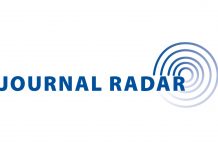By Caicun Zhou, MD, and Fei Zhou, MD
Posted: December 2017
Adjuvant chemotherapy is the standard of care for patients with resected, early-stage non–small cell lung cancer (NSCLC), including stage II, IIIA, and larger (≥4cm) IB tumors. The survival improvement observed with adjuvant chemotherapy is moderate, with a 5-year 5% absolute benefit. In an effort to break through this dilemma, the ALCHEMIST (Adjuvant Lung Cancer Enrichment Marker Identification and Sequencing Trials) has been initiated to investigate the role of adjuvant erlotinib, crizotinib, and nivolumab based on molecular alterations. Specifically, patients with EGFR and ALK wild-type tumors are randomly assigned to nivolumab 240 mg every 2 weeks for up to 1 year of observation following standard of care.
Actually, the use of targeted tyrosine kinase inhibitor (TKI) therapy in adjuvant therapy of NSCLC is not a new idea. For instance, trastuzumab for 1 year has been established as a standard of care for patients with resected, early-stage HER2- positive breast cancer. However, the role of targeted TKI in the adjuvant setting remains insufficiently investigated in NSCLC. Two early randomized clinical trials (RCTs; RADIANT and BR.19) evaluating adjuvant EGFR-TKI in completely resected NSCLC demonstrated no survival benefits in disease-free survival (DFS) or overall survival (OS) when compared with placebo. Notably, participants in these 2 trials were not selected based on EGFR mutations. Intriguingly, a subset analysis of RADIANT showed a trend towards better DFS in favor of erlotinib in patients with EGFR-activating mutations (Hazards ratio [HR], 0.61; 95% confidence interval [CI], 0.384– 0.981; P=0.0391). Subsequent trials have been designed to investigate adjuvant EGFR-TKIs in patients with EGFR mutations, including ALCHEMIST in the US, WJOG6401L in Japan, and ADJUVANT and EVIDENCE in China. We are optimistic that these trials will yield a positive result, at least showing a significant improvement in DFS. However, we have to admit that an OS benefit still remains the gold standard in adjuvant setting, where a cure is the goal.
One concern regarding adjuvant immunotherapy is that
micrometastatic lesions may not be immunogenic enough to
induce antitumor immunity, in which case anti-PD-1/PD-L1
inhibitors may prove of little use in the adjuvant setting.
Another undetermined issue regarding adjuvant TKIs is the optimal duration. The planned duration of targeted therapy in all of the adjuvant studies to date and going forward has been 2 years, but no robust evidence supports this hypothesis. Updated survival data have shown that it is safe to prolong exposure to targeted TKIs, continuing treatment for 3 years or more with EGFR or ALK TKIs in advanced NSCLC. We have observed a survival benefit from prolonged delivery of adjuvant imatinib in gastrointestinal stromal tumors (GISTs) and adjuvant tamoxifen in estrogen receptor (ER)-positive breast cancer. It is possible that prolonged exposure to TKIs will result in greater benefits; however, the optimal duration of adjuvant TKIs needs to be further investigated, preferably after showing it is indeed a superior choice. But it’s important to note that median treatment duration of EGFR TKI (gefitinib in CTONG trail and erlotinib in Radiant) was only 22 months, suggesting that the toxicities of the TKIs may prevent their prolonged use.
The investigation of immune checkpoint agents inhibiting PD-1/PD-L1 pathways constitutes another strategy in adjuvant therapy. A number of trials are ongoing to evaluate the role of anti-PD-1/PD-L1 antibodies as adjuvant agents in early-stage NSCLC. The planned duration of these agents in most of these trials is 1 year. Recently, the PACIFIC trial demonstrated that a year of treatment with durvalumab, an anti-PD-L1 antibody, could significantly prolong progression-free survival (PFS) compared with placebo (PFS, 16.5 vs. 5.6 months; HR, 0.52; 95% CI, 0.42-0.65; P<0.001) after chemoradiotherapy in unselected stage III NSCLC. The most common grade 3 or 4 adverse event in durvalumab arm was pneumonia, which was similar in incidence to the placebo arm (4.4% vs. 3.8%), suggesting that 1 year of durvalumab was safe even after chemoradiotherapy. Data on anti-PD-1/ PD-L1 antibodies in advanced NSCLC also indicate a manageable safety profiles after 2 years of drug exposure. It is possible that the prolonged delivery of these agents may provide greater benefits. Heterogeneity is one of hallmarks of cancer and it is more pronounced with advanced stages of disease; it is associated with primary or acquired resistance to therapy, including immunotherapy. Early-stage lung cancer may be a more homogeneous disease, and immunotherapy may prove more effective. One concern regarding adjuvant immunotherapy is that micrometastatic lesions may not be immunogenic enough to induce antitumor immunity, in which case anti-PD-1/PD-L1 inhibitors may prove of little use in the adjuvant setting.
Although debate will continue for a long time, we believe that the ALCHEMIST trial, if successful, will change the standard of care for patients with resected, early-stage NSCLC. More importantly, the ALCHEMIST will provide a broad overview of the genomic landscape of NSCLC in early stage and help us understand the dynamic change of genomic profiles during different stages of this disease. ✦
Related Articles
National Cancer Institute Adds Latest Clinical Trial to the ALCHEMIST Platform
Q&A with Jamie E. Chaft, MD, Regarding the ALCHEMIST Platform
Commentary Regarding Immune Checkpoint Inhibitors
Discussing ALCHEMIST with Shakun Malik, MD











